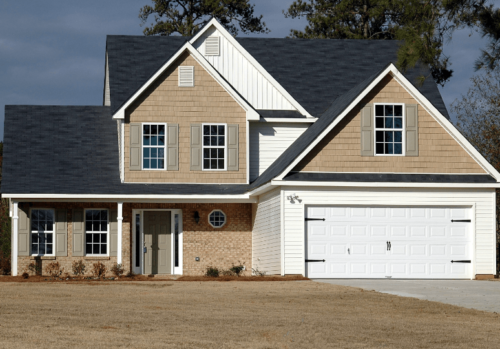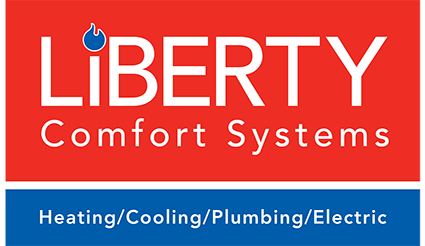
An efficient HVAC system is an essential part of every modern household. It can regulate moisture and enhance your home’s indoor air quality. Therefore, you should assess the HVAC system’s performance when moving to a new home. Here are tips on how to carry out an assessment.
Assess the Energy Efficiency of the System
One way to assess the heating and cooling systems is to determine the energy efficiency of the HVAC system. Energy efficiency will tell you how much output you are getting from a unit of fuel. The better the performance, the more money you’ll be saving.
The energy efficiency of a heating system is determined by the AFUE. Annual Fuel Utilization Efficiency is the ratio of the fuel consumed versus the energy output. The current minimum AFUE standard for boilers and furnaces is 80%.
You may also want to evaluate the SEER (Seasonal Energy Efficiency Ratio). It measures the cooling output of an air conditioner throughout the cooling season. The value can range from 13 to over 25 SEER.
You can find the energy efficiency information on the manufacturer’s manual. The SEER and AFUE ratings could also be on the equipment’s yellow and black energy guide label.
If you have a heat pump, the energy efficiency will be in HSPF (Heating Seasonal Performance Factor). An efficient heat pump should have between 8 and 10 HSPF.
Look Out for Unusual Sounds
Manufacturers design modern furnaces or air conditioning systems to generate as little noise as possible. Features such as dual-stage compressors can keep noise levels below 55 decibels. Fortunately, sounds can provide clues of faults at different stages of development in your equipment.
Banging is one of the more serious signs your HVAC system is faulty. It often indicates a loose connecting rod, piston pin, or crankshaft inside the compressor. Clanking or banging could also mean the indoor blower or fan blades are unbalanced.
You may hear a clicking noise during system startup and shutdown, which is normal. However, continuous clicking could be a sign of a failing thermostat. A faulty thermostat can give false readings and deteriorate your system over time.
You also need to watch out for screeching and squealing sounds. The most common cause of high-pitched noises is unlubricated motors or worn-out motor bearings. The repair team ought to fix the issue promptly to prevent total system failure.
Hissing noises from your equipment could indicate a refrigerant leak. A low refrigerant charge limits the capacity of your system to heat or cool the room sufficiently, and a refill is necessary to maintain the system’s performance.
You can prevent faults in your system by scheduling maintenance for your HVAC system at least once a year. Our award-winning team in Anoka recommends scheduling AC tune-up services in spring. A tune-up service involves cleaning, lubricating, and fixing faulty components to prepare for the warm season ahead.
Assess Your Home’s Building Envelope
Your home’s building envelope is the protective envelope that protects your home’s interior from the outdoor elements. One of its primary functions is to control airflow and optimize energy usage in your home. An effective building envelope enhances comfort and keeps your utility bills down.
The first step towards improving the building’s envelope is to check for air gaps around the windows and doors. Sealing holes and cracks is an inexpensive way to minimize heat losses that can raise your energy bills.
Conditioned air escaping through the thermal barrier will overwork your HVAC system. Components in your equipment will deteriorate faster, and your AC or furnace will require multiple repairs, a sign your system is approaching the end of its life.
The best way to assess the building envelope is to consult a professional service. Certified technicians use sophisticated tools, such as infrared scanners, to pinpoint minute energy leaks. You can call our 24/7 emergency team for prompt services in Anoka.
Check for Uneven Heating Across the House
Uneven heating is another indicator of the system’s inefficiencies. Uneven heating is often due to airflow problems. After assessing the building’s envelope for air leaks, check for vent and register blockages.
Rooms with blocked vents will not be receiving conditioned air. Therefore, some rooms will be warmer than the rest of the house. It may prompt you to adjust thermostat settings, but it will only overwork your HVAC system.
Another issue that may cause uneven heating is leakage in the air ducts. Joints and seams can weaken, allowing unconditioned air into the building. The unconditioned air can introduce contaminants from crawlspaces and adjacent areas.
Cool air will also leak out before getting to its destination. That means some rooms will be cooler than others. Reports from the EPA suggest you could be wasting up to 20% of your home’s energy due to duct leaks.
Duct sealing can eliminate energy losses and restore your home’s indoor air quality. Consider scheduling duct sealing and cleaning every three to five years for the best results.
Evaluate the Maintenance Service History
HVAC system technicians will keep records of the maintenance and repair history. The documentation can indicate the system’s condition and performance. Sometimes technicians will leave the tickets with all the maintenance information near your equipment.
Check if the records indicate frequent repairs in the recent past. A system approaching the end of its life will require multiple component replacements due to deterioration.
The maintenance history of the unit is essential since it shows the tune-up process ensures the system is efficient. Manufacturers will also require those records when evaluating your warranty claims. If you skip maintenance, you risk losing your warranty, meaning you’ll have to cover all replacements for the system’s components.
It is also crucial to understand the terms of the warranty before moving to finalize the purchase of a new home. Some manufacturers allow the transfer of ownership within a limited time. Request the warranty documentation from the current owner and read the terms.
Determine the Age of the HVAC System
A system close to its end is likely to be inefficient and prone to defects. So, it’s advisable to determine its age as you assess other aspects of the system. You can expect an HVAC system to last between 10 and 15 years.
Nonetheless, it doesn’t mean you always have to replace your system if it’s more than 10 years old. A well-maintained heating and cooling equipment can last for the entire duration of its lifetime. Check for other tell-tale signs to determine if you need a replacement.
If you need a replacement, consider consulting our professional team first. Our certified technicians can give you an honest assessment of your HVAC system performance. You can gain invaluable insights on upgrades and equipment that meet the needs of your home.
You can count on our award-winning team for exceptional heating and cooling services in Anoka. We are a Lennox Premier Dealer and a BBB A plus-rated service, offering a wide range of comfort solutions. Our team can fix virtually all types of equipment, including boilers, heat pumps, tankless water heaters, and mini-split systems. Talk to our team about duct cleaning, plumbing services, electrical services, and new constructions as well. Liberty Comfort Systems always takes pride in providing a world-class customer experience and quality care to Anoka residents. Call our 24-hour emergency services for prompt repairs today.

